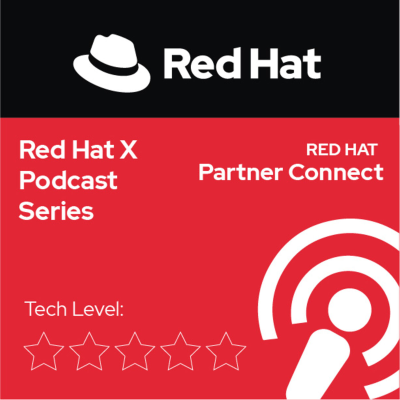
Red Hat X Podcast Series
Podcast von The Red Hat X podcast series
Nimm diesen Podcast mit

Mehr als 1 Million Hörer*innen
Du wirst Podimo lieben und damit bist du nicht allein
Mit 4,7 Sternen im App Store bewertet
Alle Folgen
167 FolgenMachine learning is transforming the tech sector and other industries like retail, manufacturing, supply chain, banking, healthcare, education, and insurance. The problem is that bringing machine learning into these fields requires not only experts who can train models, but also the ability to deploy and maintain ML models in production. This is a common pain point in many organizations. This is where MLOps is useful. MLOps is a set of practices that aims to deploy and maintain machine learning models in production reliably and efficiently. Link to academic paper discussed in this episode: https://arxiv.org/pdf/2209.09125.pdf
You are about to explore computer science and start developing the first applications. What should be your first programming language? Should it be adorable JavaScript, glorious Python, legendary Java, or... something else? Well, as always, it depends. Join Brian and Denis Magda, Head of Developer Relations at Yugabyte, in reflecting on their experiences in an attempt to find that mysterious programming language X for beginners.
Borderline paranoia – a robot in the 50s has become something that we couldn’t recognize. Today, robots are more compact, and the computers inside are tinier than ever. From the 2018 recognition of the hardware hack from China or the 2022 Starlink hack:: https://threatpost.com/starlink-hack/180389/ Aronetics features Jerod Brennen of Brennen Consulting to join our ongoing conversation that discovers issues with black boxes in your home or business and the complex implicit trust.
Modern cloud-native environments using Kubernetes or OpenShift are driving innovation and speed for development teams but these technologies do not come with a framework or set of rules for implementing container security. Choices for security tooling are often down to what development teams and operations teams regard as best practices. In this session, the Jetstack team will cover why machine identity management is fundamental to delivering container security and discuss what organizations can do to improve best-practice container security.
Enterprises are building and delivering containers and Kubernetes-based applications to their customers. With a distributed architecture, microservices are communicating with each other and 3rd party APIs to enable information exchange and present it to the customers. Such communication via the internet makes these applications vulnerable to external network-based attacks. In this podcast, we will discuss how traditional runtime threat defense solutions fall short of preventing attacks, and a new approach is required that provides: * Workload-based Intrusion Detection and Prevention Systems (IDS/IPS) * Deep Packet Inspection (DPI) and application-level visibility for containerized workloads * Container runtime security with malware protection and zero-day attack protection























